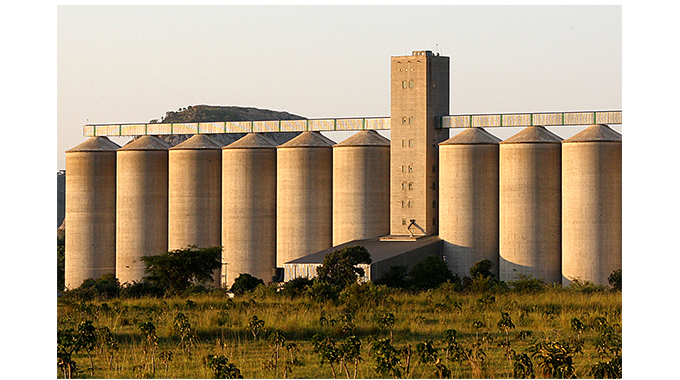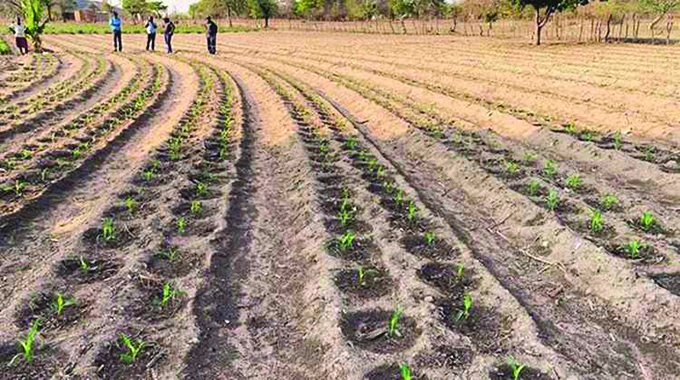‘Zimbabwe food secure’…Country has 11 months’ grain reserves

Nqobile Tshili, Chronicle Reporter
GOVERNMENT strategies to ensure national food security are paying dividends with the country having grain reserves lasting 11 months, making the Cabinet committee on imports redundant for more than a year.
Cabinet had in the past established a committee on food imports to manage how the country buys grain to supplement local production.
But the adoption of the Agriculture and Food System Strategy in 2020 has resulted in real transformation in the country’s agriculture.
The policy aims to create an US$8,2 billion agriculture economy by 2025 and guarantee national food security. In an interview, Lands, Agriculture, Fisheries, Water and Rural Development Minister Dr Anxious Masuka said following measures adopted in the agriculture sector, the country is eliminating imports.
“In 2020 in August, the President put in place a radical transformative strategy for the agriculture sector called the Agriculture and Food System Strategy in which we envisaged making this country food secure. Then we even had a Cabinet committee on food importation and now that Cabinet committee last met more than a year ago because as we speak, we have 560 000 metric tonnes of grains in the Grain Marketing Board. That is enough to supply us for the next 11 months so the country is food secure,” said Dr Masuka.
“This year we have had a record wheat production of 80 000 ha which is unprecedented in the history of the country. Now we have harvested more than 360 000 metric tonnes which is already the highest which we have ever achieved.”

Dr Anxious Masuka
As a result of Government’s transformation of the agriculture sector, tobacco output marginally grew 1 percent, to 213 million kgs whilst incomes to the farmers grew by 10 percent to US$650 million.
The total export earnings from tobacco are projected to be US$1billion this year.
Maize production for the 2021/2022 season stood at 1, 5 million tonnes while soyabean output grew by 15 percent to 82 028 metric tonnes in 2021/22.
The horticulture sector is on a rebound targeting export crops such as pecan nuts whose production increased significantly by 348 percent from 85,3 tonnes last season to 374 tonnes in the 2021/22 while production of blueberries increased sharply to 5 000 tonnes in the 2021/2022 season.
Sugarcane production is estimated at six million tonnes which represents a three percent increase from 5,8 million tonnes in the 2020/2021 season.

Dr Masuka said the country introduced climate proofing farming methods to support commercial and small holder farmers.
He said through the strategy Government has been able to support 3 million smaller holder farmers through the Presidential Inputs Scheme.
“We have made so much progress in terms of climate proofing agriculture at smallholder level through the Intwasa/Pfumvudza programme, availing inputs to 3 million households, eliminating corruption in that space and also building more dams and ensuring that there is conveyance,” said Dr Masuka.
Government through the Zimbabwe National Water Authority is also constructing 12 high-impact dams across the country, three of them in Matabeleland region. The dams include Lake Gwayi Shangani and Ziminya Dam in Matabeleland North and Tuli-Manyange Dam in Gwanda Matabeleland South. Dr Masuka said the construction of dams will enable the country not to rely too much on rain-fed agriculture production.

Lake Gwayi-Shangani
“Now we have an ambitious programme to have 350 000 hectares irrigated so that come rain come sunshine we will be able to produce enough for the country,” he said.
Dr Masuka said Government is in the process of resuscitating the horticulture sector and revamping mechanisation which is an enabler in ensuring the country achieves food security.
“We are looking at the financing arrangement and we have resuscitated the Agricultural Finance Company Holdings (AFC). So much is happening at the policy and regulatory environment level. We have put in an enabling legislation to enable the private sector to come and finance,” said Dr Masuka.
Private players support the agricultural sector through providing inputs to commercial farmers under the National Enhanced Agricultural Productivity Scheme (NEAPS).

Pfumvudza/Intwasa
The Minister said while progress has been achieved so far, he is confident that the country can do better in improving agriculture production.
“I think we are making so much progress. Am I happy? No. I think we could have done better and we can do more and I’m pleased that the 16 stakeholder groups that I formed and meet on a quarterly basis is beginning to look at this thing from a same perspective, the private sector and Government working for one common good as we transform the agriculture sector household buy household, plot by plot, enterprise by enterprise leaving no one behind,” he said. — @nqotshili












Comments